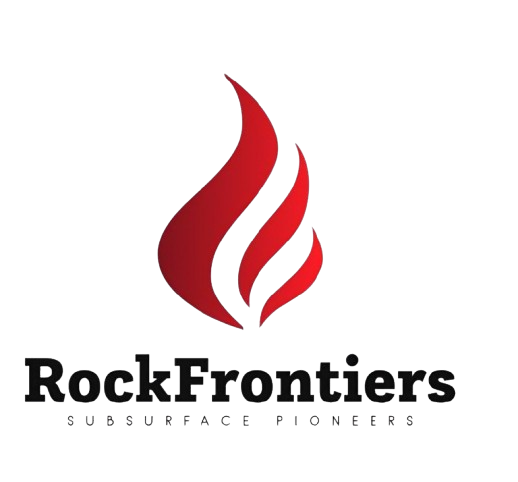💻 Essential Data Science for Petroleum Geoscientists and Engineers
📘 Course Description This course is designed to bridge the gap between traditional petroleum subsurface disciplines and modern data science techniques. Participants will learn to apply statistical analysis, machine learning, and predictive modeling to geological, geophysical, and engineering data. Using …
Overview
📘 Course Description
This course is designed to bridge the gap between traditional petroleum subsurface disciplines and modern data science techniques. Participants will learn to apply statistical analysis, machine learning, and predictive modeling to geological, geophysical, and engineering data. Using Python and industry-standard tools, attendees will gain hands-on experience in transforming raw data into actionable insights for better reservoir characterization, production optimization, and risk reduction.
🎯 Learning Objectives
✅ Understand the fundamentals of data science and machine learning
✅ Apply key data wrangling and preprocessing techniques to subsurface data
✅ Build regression, classification, and clustering models for geoscience and engineering problems
✅ Visualize large datasets effectively
✅ Interpret machine learning results and integrate them into petroleum workflows
✅ Automate repetitive tasks and improve efficiency in reservoir analysis
👥 Who Should Attend
-
Geoscientists and geophysicists
-
Reservoir and production engineers
-
Petrophysicists
-
Data managers in E&P companies
-
Technical professionals seeking to upskill in data science
🗂️ Training Format
✅ Lectures with real-world subsurface data examples
✅ Interactive coding sessions in Python (Jupyter Notebooks)
✅ Hands-on exercises in data visualization, ML modeling, and interpretation
✅ Group discussions of applications to participants’ workflows
✅ Industry case studies highlighting data-driven decision making
📅 Detailed Daily Agenda with Time Breaks
📅 Day 1: Introduction to Data Science for Energy
| Time | Topic |
|---|---|
| 08:30 – 09:00 | Welcome, Course Objectives & Introductions |
| 09:00 – 10:30 | Overview of Data Science in Oil & Gas |
| 10:30 – 10:45 | ☕ Coffee Break |
| 10:45 – 12:15 | Basic Python for Data Analysis (NumPy, Pandas) |
| 12:15 – 13:15 | 🍽 Lunch |
| 13:15 – 14:45 | Data Types & Structures for Geoscience |
| 14:45 – 15:00 | ☕ Coffee Break |
| 15:00 – 16:30 | Practical: Importing & Cleaning Subsurface Data |
📅 Day 2: Exploratory Data Analysis & Visualization
| Time | Topic |
|---|---|
| 08:30 – 10:00 | Descriptive Statistics & Data Summarization |
| 10:00 – 10:15 | ☕ Coffee Break |
| 10:15 – 12:15 | Data Visualization with Matplotlib & Seaborn |
| 12:15 – 13:15 | 🍽 Lunch |
| 13:15 – 14:45 | Handling Missing & Outlier Data |
| 14:45 – 15:00 | ☕ Coffee Break |
| 15:00 – 16:30 | Practical: EDA on Petrophysical Logs & Seismic Attributes |
📅 Day 3: Machine Learning Fundamentals
| Time | Topic |
|---|---|
| 08:30 – 10:00 | Introduction to Supervised & Unsupervised Learning |
| 10:00 – 10:15 | ☕ Coffee Break |
| 10:15 – 12:15 | Regression Models for Reservoir Properties |
| 12:15 – 13:15 | 🍽 Lunch |
| 13:15 – 14:45 | Classification Models (e.g., Lithofacies Prediction) |
| 14:45 – 15:00 | ☕ Coffee Break |
| 15:00 – 16:30 | Practical: Building and Evaluating ML Models |
📅 Day 4: Advanced Modeling & Applications
| Time | Topic |
|---|---|
| 08:30 – 10:00 | Clustering & Dimensionality Reduction (PCA, K-means) |
| 10:00 – 10:15 | ☕ Coffee Break |
| 10:15 – 12:15 | Feature Engineering with Subsurface Data |
| 12:15 – 13:15 | 🍽 Lunch |
| 13:15 – 14:45 | Cross-validation & Avoiding Overfitting |
| 14:45 – 15:00 | ☕ Coffee Break |
| 15:00 – 16:30 | Practical: Predicting Reservoir Properties with ML |
📅 Day 5: Integrated Workflows & Deployment
| Time | Topic |
|---|---|
| 08:30 – 10:00 | Automating Workflows with Python Scripts |
| 10:00 – 10:15 | ☕ Coffee Break |
| 10:15 – 12:15 | Interpreting ML Results for Field Development |
| 12:15 – 13:15 | 🍽 Lunch |
| 13:15 – 14:45 | Real-World Case Studies in Subsurface Data Science |
| 14:45 – 15:00 | ☕ Coffee Break |
| 15:00 – 16:30 | Group Presentations, Review, Q&A, & Certificate Ceremony |
📦 Materials Provided
✅ Comprehensive digital course manual
✅ Python Jupyter Notebooks with exercises
✅ Example datasets (logs, seismic, production data)
✅ Certificate of Completion
Target audiences
- Reservoir Engineers, Geologists
You May Like
📘 Underbalanced Drilling (UBD) Techniques and Safety
🎯 Course Description: This intensive 5-day program focuses on Underbalanced Drilling (UBD) – an advanced technique used to drill wells where the hydrostatic pressure of the fluid is intentionally kept below formation pressure. Participants will learn how to implement UBD …
📘 IOSH Managing Safely
🎯 Course Description: A practical, 5-day program designed to help managers and supervisors learn how to manage safety and environmental responsibilities in their teams. Emphasis is placed on identifying risks, measuring performance, and leading safely using internationally recognized good practices. …
📘 IWCF Level 3 Well Control (Surface BOP)
🎯 Course Description: This is an intensive course aimed at drilling / well service personnel needing to gain supervisory competence in well control using surface blow‑out preventers (BOP) under the IWCF standard. It covers theory, hands‑on practice, and assessments for …
Advanced Specialist Petroleum GeoMechanics
📘 Course Description: This elite-level course is tailored for petroleum geomechanics specialists and senior subsurface professionals engaged in complex field development projects. It provides a deep technical dive into stress modeling, anisotropic rock behavior, coupled geomechanical-reservoir simulation, fault/fracture mechanics, and …
📘 OSHA 30‑Hour General Industry Safety and Health
🎯 Course Description: This 5‑day course provides in‐depth knowledge of workplace safety and health in general industry sectors. It covers OSHA regulations, hazard recognition, safety programs, and industry best practices. Participants will gain the expertise needed to maintain a safe …






